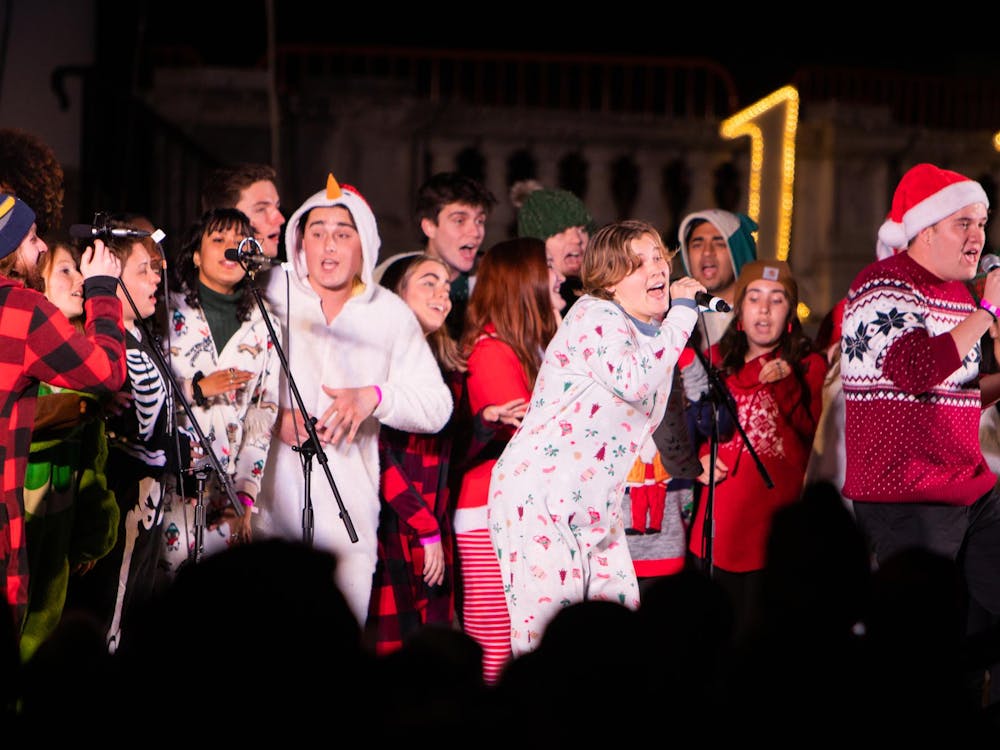It is easy for University students to grab a hamburger for lunch in between classes. But how many cows would it take to feed the entire University community?
Perhaps not as many as one may think. Living Gifts: Heifer International at U.Va. seeks to combat world hunger in a more unorthodox manner than usual: by supplying actual livestock to needy communities around the world. Heifer International’s “mission is to end world hunger, poverty and to care for the earth,” according to its Web site. The organization began in 1944. More than half a century later, it now exists in 125 countries and has helped 8.5 million families.
“Our club is intent on being able to donate [to HI] but we also really want to raise awareness and promote the idea that world hunger can be managed,” said third-year College student Caitryn McCallum, co-president of Living Gifts.
HI teaches communities environmentally-sound agricultural techniques so they can protect their own resources, according to the group’s Web site.
“They are a really eco-friendly group with eco-friendly ideas,” Furber said. Living Gifts hopes to bring awareness of these ideas to the University, and they are therefore “trying to grow our presence on Grounds,” she added.
McCallum noted that the University’s chapter, as one of two college groups designed to support HI, is currently working on getting established on Grounds, before looking to help the wider Charlottesville community.
McCallum and College student Kerilyn Daniel started the organization in spring 2008 but it did not become active until this year. This semester has seen the organization’s greatest increase in membership.
The club is also looking to involve other student organizations — specifically Greek organizations — as a way to raise awareness through social events, said third-year College student Kappie Farrington, Living Gifts’ community relations chair.
She added the group already had one fundraising event this semester. To raise money for HI Living Gifts, group member and third-year College student Katie Schroeder designed Valentine’s Day cards that said, “To my Hunny.” The cards were free, but volunteered donations were used to buy two beehives for HI.
Living Gifts hopes to hold another fundraiser this spring: “Cow-pie Bingo.” The event would involve a large-scale game of bingo and a live cow, with students betting where on a grid the cow would first defecate.
Although a creative idea, Cow-pie Bingo has encountered some difficulties getting started, including issues negotiating risk management because of the presence of a live animal and the potential for toxic waste.
“We also have to make sure no one gets offended,” said second-year College student Stephanie Chubb, the club’s fundraising chair. “We aren’t mistreating the cow, we’re just watching it poop.”
There is also the issue of finding a cow.
“We are having trouble getting [Cow-pie Bingo] funded,” said treasurer McKenzie Furber, a second-year College student.
Although an endorsement letter from Heifer International helped the University’s chapter gain more support from Student Council, Living Gifts currently relies entirely on donations for prizes at fundraising events. Moreover, members have paid for all publicity “out of their own pockets,” Furber said.
The group has not received funding from the University yet, one of the reasons the members are keen to work with other organizations that could help co-sponsor events.
“We’re still hopeful that if we show more activity around Grounds, [the University] will be more generous,” McCallum said.
The group has several ideas for raising awareness of its presence on Grounds. One idea is a “Sacrifice Meal,” during which students would swipe into a dining hall as usual, but only fruit, bread, soup and water would be served. The money the dining hall would save would then be donated to HI. Another idea the group is considering is an “Oxfam Meal,” which would simulate the world’s actual food distribution and provide meals accordingly.
“It’s turned out to be really complicated,” Chubb said, “but we are still trying to do it.”
Living Gifts aims to come up with events that allow students to participate in more hands-on ways, rather than through simple donations.
“[Students] really want to get actively involved,” Farrington said. ”They don’t just want to give their money away.”
She cited programs like Alternative Spring Break and the newly-created Global Development major as examples of University students’ activism.
Although she acknowledged the merit of such activities, Farrington emphasized that “the impact of a sustainable gift, such as a livestock, is going to be more long-lasting and beneficial to a community than a few weeks of aid work.”
Heifer International needs money more than anything else. Donors can choose what animal or object they purchase for a community, but cannot choose exactly where their money goes. HI sends the funds where they are needed most.
“But remember that included in that ‘price’ is not only the cost of a cow,” McCallum said, “but the cost of shipping it and then teaching people how to care for it and use it sustainably.”
Chubb said the group is busy brainstorming. “We really need people to support us,” she said, “because carrying out our task is not going to be feasible otherwise.”




